CATHOLIC CONNECTION

For the Care of Creation


For the Care of Creation
Kirsten Shrewsberry





Volume 34, Number 2 FOR THE CARE OF CREATION
We pray that each one of us will hear and take to heart the cry of the Earth and of victims of natural disasters and climactic change, and that all will undertake to personally care for the world in which we live.
Elizabeth Griffon
Deacon Charles Thomas, OFS
Karen Dill
Reverend Jean Bosco Uwamungu
Mary Arcement Alexander
Katie Glenn Brown
Kevin Schemenauer, Ph.D.
Diane Libro
Mike Van Vranken
Cassandra Key Polly Maciulski
SUBSCRIPTIONS & ADDRESS CHANGES
Blanca Vice bvice@dioshpt.org 318-868-4441
SUBMISSIONS
Kirsten Shrewsberry doseditor@dioshpt.org
The Catholic Connection is a member of the Catholic Media Association.
The Diocese of Shreveport complies with Virtus’ Protecting God’s Children program (www.virtus.org). Online sessions are available. To report child sexual abuse by a cleric or church worker in the Diocese of Shreveport, call your local law enforcement agency and Mary Arcement Alexander, Diocesan Victim Assistance Coordinator at 318-588-2120. Thank you for helping to keep our children and vulnerable adults safe.
The Catholic Connection is funded in part by a grant from Catholic Home Missions and donations to the Catholic Service Appeal.
The Catholic Connection is a monthly publication funded by your Catholic Service Appeal, mailed to every known Catholic household in the Diocese of Shreveport. Our mission is to advance knowledge and understanding of our Catholic faith among the faithful. We seek to foster the application of Christ’s teachings and our Church’s mission in our daily lives and to encourage our sense of Catholic identity within our family, parish, and faith community.
September 7/8 – The Catholic University of America Catholic University is the national research university of the Catholic Church. Gifts to this Collection support students during this crucial time and help the University conduct critical research that will serve parishes and dioceses throughout the country. 100% of the gifts go to the University.
Bishop Francis I. Malone
Msgr. Matthew T. Long

Fr. James McLelland, Fr. Karl Daigle
Saint Peter Claver,
Fr.
Internship in Spiritual Direction Informational Meetings, 10 AM and 6 PM
Saints Cornelius,
and
Saint Gregory the Great, Pope and Doctor of the Church
Msgr. Rothell Price
Fr. Adrian Fischer, Fr. Patrick Madden
Saint Pius of Pietrelcina, Priest Fr. Mark Watson, Fr. Charles Glorioso
Saint Robert Bellarmine, Bishop and Doctor of the Church; Saint Hildegard of Bingen, Virgin and Doctor of the Church
Fr. Michael Thang’wa
24
Fr. Timothy Hurd,
Fr. Gabriel Cisneros Campos
Fr. Kelby Tingle Understanding the Mass @ Cathedral of St. John Berchmans, 5:30 PM
Fr. Nicholas Duncan Presbyteral Council Meeting; Catholic Center, Shreveport; 2:00 PM
SJB
Trivia Night @ Cathedral of
Multi-Room, 5-8
Feasts & Solemnities Priest(s) in the Diocese of Shreveport to pray for daily
Bishop Malone's Calendar Special Events in the Diocese of Shreveport
Saint Jerome, Priest and Doctor of the Church
Fr. Philip Michiels, Msgr. Earl Provenza All deceased priests of the Diocese of Shreveport
FOR MORE EVENTS CHECK OUT THE AROUND THE DIOCESE SECTION ON PAGE 31
Fidel Mondragón
The Most Holy Name of Mary Fr. Jerry Daigle Understanding the Mass @ Cathedral of St. John Berchmans, 5:30 PM
Saint John Chrysostom, Bishop and Doctor of the Church
Fr. John Paul Crispin Spirituality Weekend for the Olivetan Benedictine Sisters; Holy Angels Convent, Jonesboro, AR (through 9/15)
Fr. Peter Romanus Mallya
Saint Januarius, Bishop and Martyr Fr. Jean Bosco Uwamungu Louisiana Conference of Catholic Bishops Meeting; Immaculata Center, Lafayette; 1 PM – 3 PM
Saints Andrew Kim Tae-gŏn, Priest, and Paul Chŏng Ha-sang, and Companions, Martyrs Fr. Charles Ssennyondo
Saint Matthew, Apostle and Evangelist Fr. Mark Franklin, Fr. Joseph Maddala
Fr. Joseph Martina, Fr. James Moran
Saints Cosmas and Damian, Martyrs Fr. James Dominic Thekkemury, Fr. LaVerne “Pike” Thomas Catholicism 101 Foundations of Faith @ Jesus the Good Shepherd, 5:30 PM
Saint Vincent de Paul, Priest Fr. Richard Norsworthy, Fr. Rigoberto Betancurt Cortés
Saint Wenceslaus, Martyr; Saint Lawrence Ruiz and Companions, Martyrs; BVM Fr. Philip Chacko Theempalangattu, Fr. Joseph Ampatt
SUGGESTED PRAYER FOR OUR PRIESTS:
Gracious and loving God, we thank you for the gift of our priests. Especially ___________________________________ (insert name(s) here)
Through them, we experience your presence in the sacraments.
Help our priests to be strong in their vocation. Set their souls on fire with love for your people.
Grant them the wisdom, understanding, and strength they need to follow in the footsteps of Jesus.
Inspire them with the vision of your Kingdom.
Give them the words they need to spread the Gospel.
Allow them to experience joy in their ministry.
Help them to become instruments of your divine grace.
We ask this through Jesus Christ, who lives and reigns as our Eternal Priest. Amen.

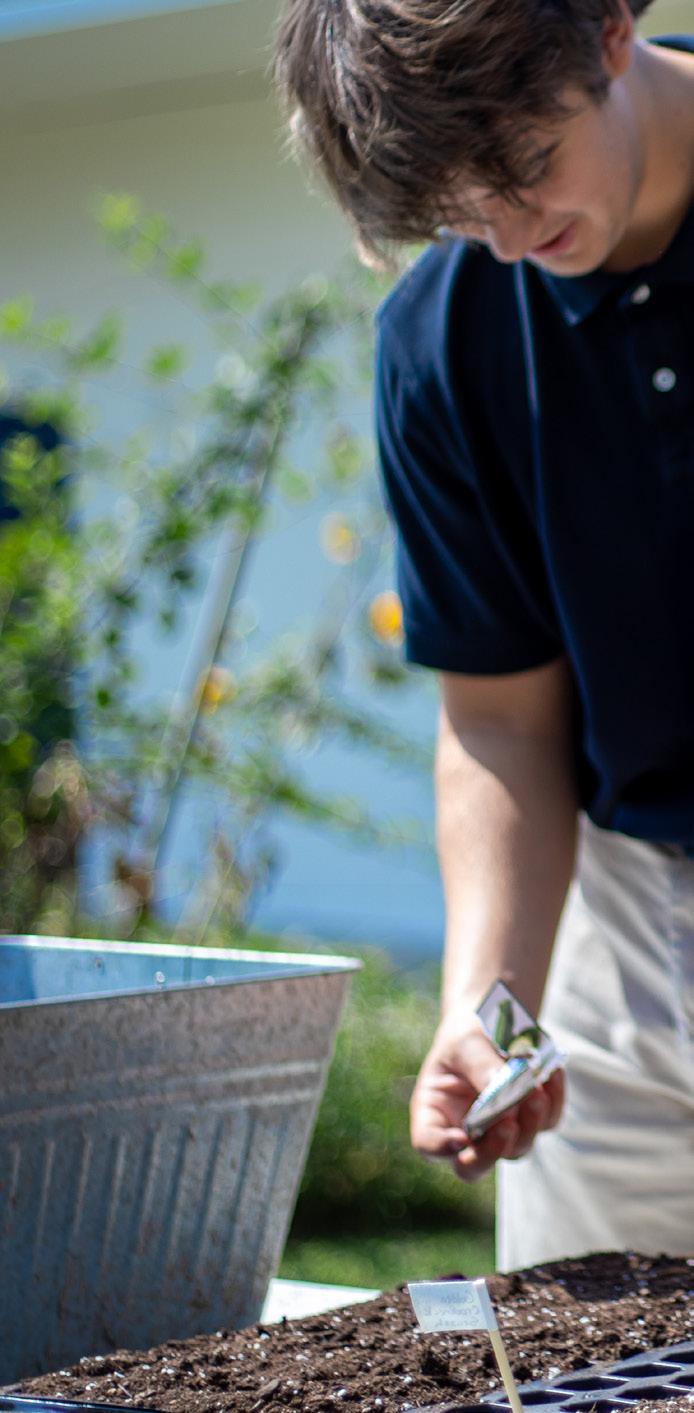



St. Frederick High School's Commitment to Environmental Stewardship.

Fr. Jean Bosco Uwamungu reflects on our calling to both subdue and care for creation.

Around the Diocese

“WHEN YOU THINK OF GOD’S FACE, WHAT DO YOU SEE?” I was asked this question a lot over the course of my early faith formation journey. The question always makes you wonder, do you see an older man like in Renaissance paintings? Do you see Jesus on the Cross? For me, I’ve always seen God’s face in His creation.
A few years ago, I went to Hawaii with my mom and decided to climb a mountain. I figured climbing a mountain is just a series of steps (true in theory, but not so simple in practicality) and began my climb on our first full day in Hawaii. I had to return down after climbing only a third of the way up. I would strongly recommend training before scaling an actual mountain. On my last full day on the island, I tried again, and surprisingly, after a series of steps with lots of breaks in between, I eventually made it to the top. And at the top of the mountain, I experienced the presence of God. I saw God’s face in how the waves kissed the shore and how the sun climbed over the horizon. I saw God’s face in the beauty surrounding me, and I couldn’t help but marvel at how truly good He is to create such a beautiful world.
When confronted with God’s face in His creation, I feel we cannot help but feel convicted to care for His creation in whatever way we can. And His creation doesn’t stop at the plants, rocks, or trees. God created all of us, too, so our duty to care for creation expands to caring for His people, especially the marginalized, lowly, and people in most need of His mercy.
This month, we have several beautiful reflections and opportunities to learn more about what it means for Catholics to truly “care for creation.” I hope you learn something new, and I hope you’re called more profoundly into a relationship with God through His charge to us to care for His creation.

LIKE MOST CATHOLICS THROUGHOUT THE WORLD, I PAID CLOSE ATTENTION TO THE PAPAL ELECTION IN 2013. Much to everyone’s surprise, the Cardinal-electors chose an American, from South America, to assume the papacy vacated by Pope Benedict XVI’s resignation. Few people knew of Cardinal Jorge Bergoglio, and thus were equally surprised that the Cardinals elected a Jesuit as our new pope.
There are a few stories shared about him, his time in Buenos Aires and the moment of his election as pope, but a favorite of mine is of the moment when the election was completed. Sitting in his assigned seat in the Sistine Chapel, Cardinal Bergoglio is approached by the cardinal deacon and asked if he accepts his election. Upon answering in the affirmative, he is asked, “By what name will you be called?” Having anticipated this question, the cardinal sitting next to him whispers, “Remember the poor.” Thus, having accepted the election, the new Pope announced his new name… “Francis.”
Naturally, I was excited to hear the Pope had chosen MY name, Francis, which certainly meant “Francis Xavier,” the great Jesuit saint and my patron saint. However, he soon clarified his name was not Xavier, but Francis of Assisi, which brought immediate joy as I realized the newly elected Pope had a much deeper understanding of that to which he had been elected: “servant of the servants of God.”
It was clear in that moment, as the first few months of his papacy unfolded, and throughout the past 11 years, that Pope Francis wanted his papal life to be in imitation of Saint Francis of Assisi, who was truly an apostle of the poor. It moved me to deeper research of this saint, his love of simplicity and the poor, his concern for the things of the earth (like ministry to the poor or disenfranchised), his love of the world and environment, and God’s call to him in his youth to look after those earthly things for which you and I are also responsible. Pope Francis has demonstrated this love and, by his life, has encouraged us to do the same.
I have encountered much that calls out for change in our world and for us to embrace the not-too-distant opportunities to protect it. People come first, of course, especially the poor and the marginalized. But topics like “global warming” don’t seem to grab most people’s attention, nor does the Holy Father’s call to us to take responsibility for our global home. His call flies in the face of pollution, littering, the lack of clean water, imprudent use of earthly resources for the good of others … and I am confident you can add to this list. Yet, each of us is called by another “Francis” to take ownership for the world around us and treat it for what it is: a gift from God for a time – our time, this time. May we honor our Lord as St. Francis of Assisi did, as Pope Francis does, and as we should. It’s certainly what God expects of us.


COMO LA MAYORÍA DE LOS CATÓLICOS DE TODO EL MUNDO, PRESTÉ MUCHA ATENCIÓN A LA ELECCIÓN PAPAL DE 2013. Para sorpresa de todos, los cardenales electores eligieron a un americano, de América del Sur, para asumir el papado dejado vacante por la renuncia del Papa Benedicto XVI. Pocas personas conocían al cardenal Jorge Bergoglio, y por ello se sorprendieron igualmente de que los cardenales hubieran elegido a un jesuita como nuestro nuevo papa.
Hay unas cuantas historias compartidas sobre él, su estancia en Buenos Aires y el momento de su elección como Papa, pero una de mis favoritas es la del momento en que se completó la elección. Sentado en su asiento asignado en la Capilla Sixtina, el Cardenal Bergoglio recibe el acercamiento del cardenal diácono, quien le pregunta si acepta su elección. Al responder afirmativamente, se le pregunta: “¿Con qué nombre serás llamado?”. Habiéndose anticipado a esta pregunta, el cardenal sentado a su lado susurra: “Acuérdate de los pobres”. Así, habiendo aceptado la elección, el nuevo Papa anunció su nuevo nombre... “Francisco”.
Naturalmente, me entusiasmó oír que el Papa había elegido MI nombre, Francisco, que ciertamente significaba “Francisco Javier”, el gran santo jesuita, y mi santo patrón. Sin embargo, pronto aclaró que no se llamaba Javier, sino Francisco de Asís, lo que me produjo una alegría inmediata al darme cuenta de que el recién elegido Papa tenía una comprensión mucho más profunda de aquello para lo que había sido elegido: “siervo de los siervos de Dios”.
Quedó claro en ese momento, a medida que se desarrollaban los primeros meses de su papado, y a lo largo de los últimos 11 años, que el Papa Francisco quería que su vida papal fuera una imitación de San Francisco de Asís, que fue verdaderamente un apóstol de los pobres. Me conmovió a realizar una investigación más profunda sobre este santo, su amor por la simplicidad
y los pobres, su preocupación por las cosas de la tierra (como el ministerio con los pobres o los marginados), su amor por el mundo y el medio ambiente, y la llamada que Dios le hizo en su juventud para que cuidara de esas cosas terrenales de las que tú y yo también somos responsables. El Papa Francisco ha demostrado este amor y, con su vida, nos ha animado a hacer lo mismo.
Me he encontrado con muchas cosas que piden un cambio en nuestro mundo y que aprovechemos las oportunidades no muy lejanas de protegerlo. Las personas son lo primero, por supuesto, especialmente los pobres y los marginados. Pero temas como el “calentamiento global” no parecen captar la atención de la mayoría de la gente, como tampoco lo hace el llamamiento del Santo Padre a que asumamos la responsabilidad del hogar global en el que vivimos. Su llamamiento se opone a la contaminación, al vertido de basura, a la falta de agua limpia, al uso imprudente de los recursos de la tierra para el bien de los demás... y estoy seguro de que ustedes pueden añadir más a esta lista. Sin embargo, cada uno de nosotros está llamado por otro “Francisco”, a tomar posesión del mundo que nos rodea, y tratarlo como lo que es, un regalo de Dios por un tiempo, nuestro tiempo, este tiempo. Que honremos a nuestro Señor como lo hizo San Francisco de Asís, como lo hace el Papa Francisco, y como deberíamos hacerlo. Es ciertamente lo que Dios espera de nosotros.
Para obtener más información sobre las oportunidades del Ministerio Multicultural en la Diócesis de Shreveport y para encontrar nuestros horarios y lugares de misa en español, por favor escanee el código aquí.



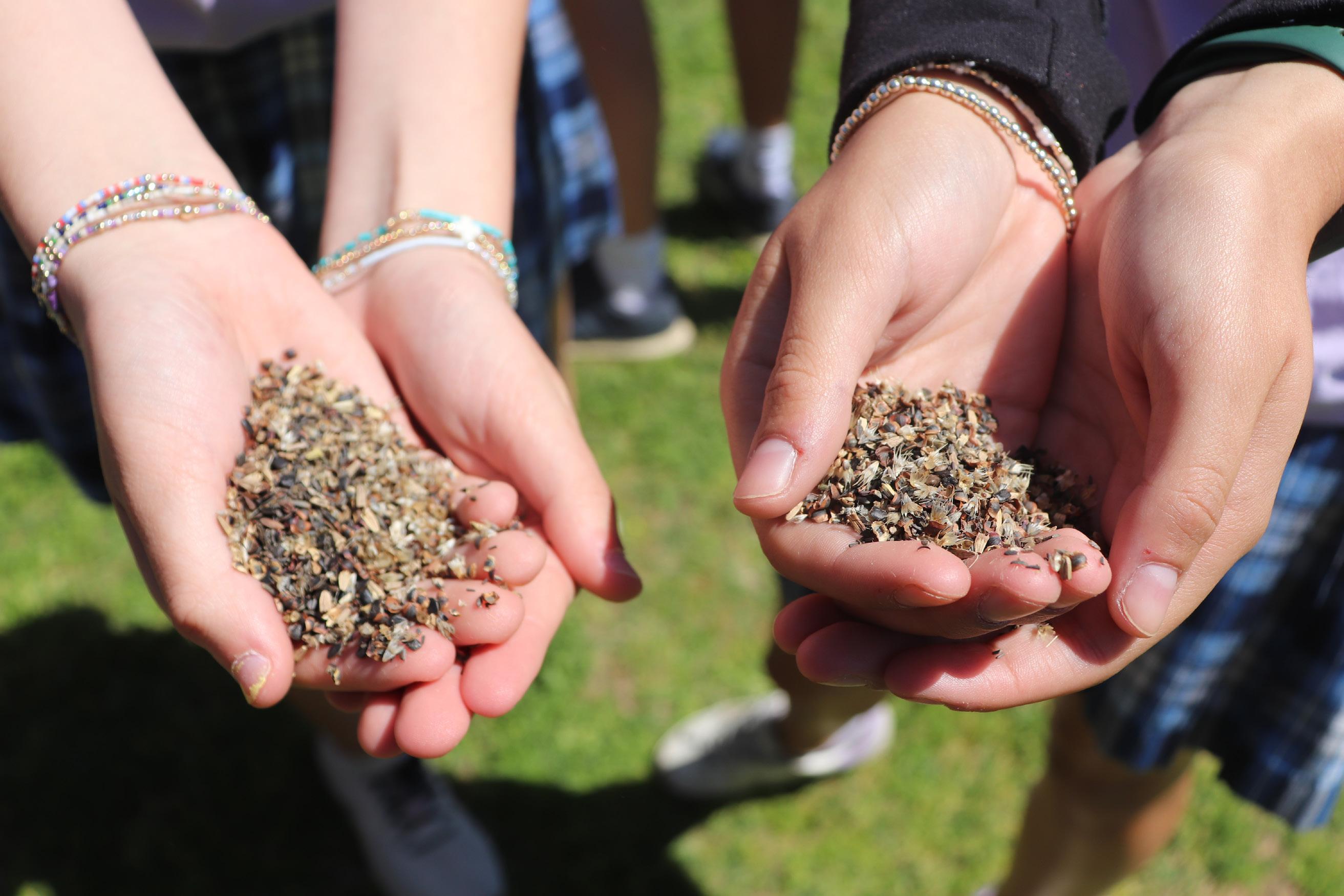
AS I BEGIN MY FIFTH YEAR AT ST. FREDERICK HIGH SCHOOL (SFHS), I CAN HONESTLY SAY THERE’S NO PLACE I’D RATHER BE. Much of that is because I provide real-world, hands-on experiences, like gardening, bee-keeping, and environmental awareness for my students. We became an International Baccalaureate (IB) World School, participating in the IB Middle Years Program (ages 11-16, through grade ten), and so shifted our focus to inquiry-based learning that emphasizes more hands-on experiences and applications, and less lecture and memorization. It’s been rewarding to see the students flourish with this learning approach! A favorite aspect of the program for me is its goal to create well-rounded students while aligning with the principles of a Catholic school, particularly to teach rigorous academic studies and foster empathy, community, and compassion in a world that needs it.
When hired in 2020 to teach science at SFHS, I was blessed to participate in our on-campus garden begun a few years earlier by then physical science teacher, Dan Lindow. The two-fold goals of our garden at its outset were to give students an opportunity to give back to our community and to show students where their food came from and how it moves from farm to table. They have a hand in every step of the process, from preparation, care, and maintenance, all the way through harvest, and they’re even charged with finding donation recipients for our fresh produce. The program keeps the focus turned away from ourselves and toward outreach and the mission to give back to our community.
Since that first 2020-2021 season, the Horticulture Club and science classes have added a greenhouse for starting seeds and wintering plants, a compost barrel and pile to learn about soil content and replenishing nutrients in the soil, two rain barrels to trap rainwater and reduce use
of the city water supply, and, most recently, a beehive.
As our program has grown over time, so have our goals. Along with gaining firsthand knowledge and evidence of ecosystems and symbiotic relationships (principles learned in the classroom), students experience a level of responsibility and understanding of our role as stewards of this planet and the ecosystems we call home.
Over the past few years, my classes and clubs have installed four new flower beds specifically for native wildflowers, after researching which native plants support the most species, hypothesizing and debating whether a monoculture or variety of plants would attract more species, and planting milkweed, goldenrod, native sunflowers, and various other native southeastern wildflowers. They rebuilt greenhouses and replanted gardens after the trauma of late freezes, floods, hurricanes, droughts, and careless mowers. After learning in detail about the honeybees on campus, they planted sufficient flowers to both feed the bees and provide nectar, pollen, food, and shelter for numerous other native pollinators, all of which strengthened the vegetable garden. They cared for and studied caterpillars, then released them as butterflies. Through all of these, the students discovered just how much biodiversity lives around us, even on a campus in the middle of town.
With each class that collected water, planted a seed, or photographed and studied plants and bugs, I've watched natural curiosity blossom, and an actual thirst for knowledge grow that otherwise tends to wilt in more traditional classroom settings.
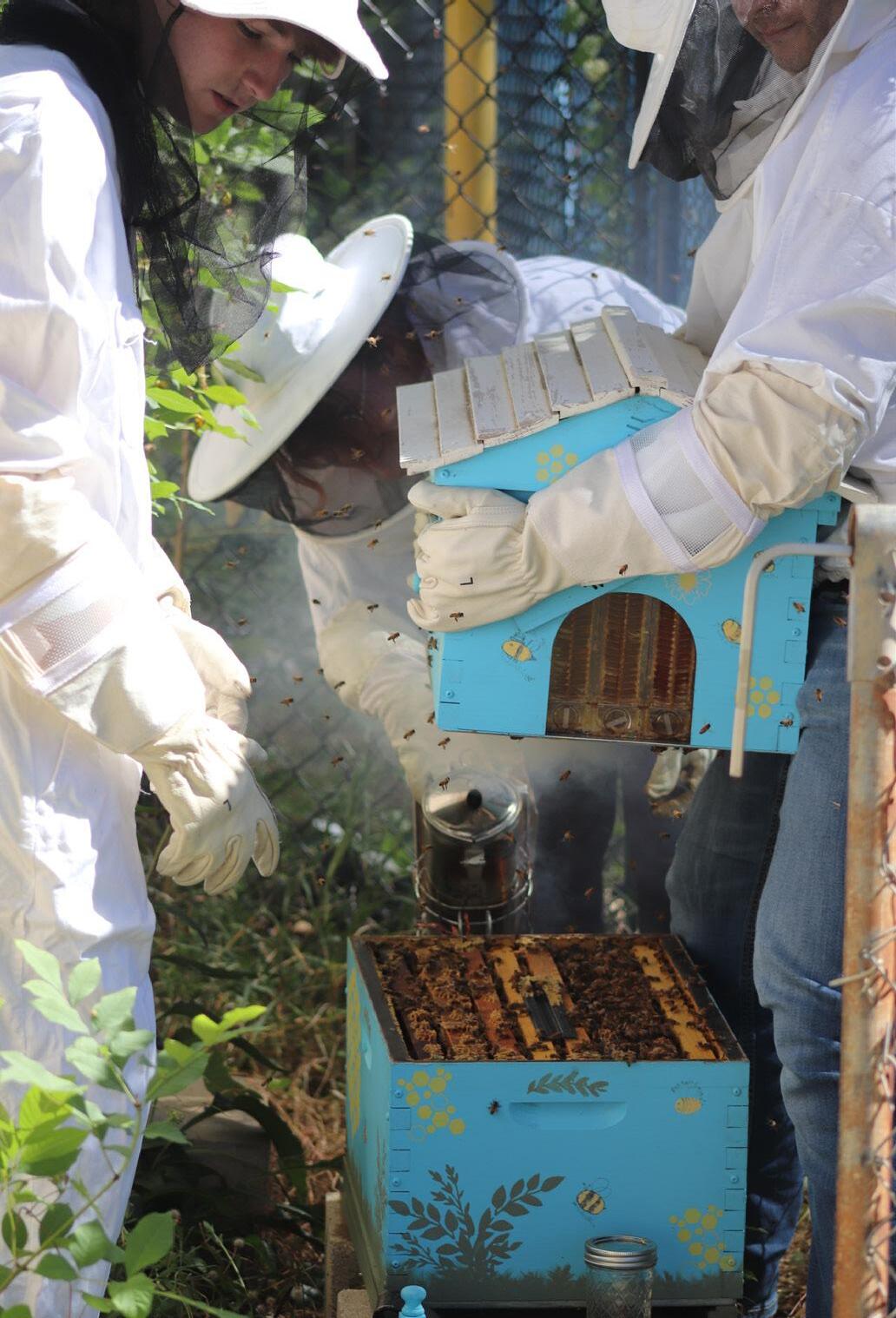

Two years ago, SFHS math teacher Jeanne Clark also started a recycling program to educate students and help our environment now and for future generations. It teaches youth about the importance of recycling, reducing the trash filling our landfills, and working as a school toward a smaller carbon footprint. Five-gallon, blue Lowe’s buckets collect plastics and cans in each classroom, while larger 55-gallon trash cans collect recyclables in the cafeteria, picnic area, gym, and football locker room during lunchtime, practices, and games. Every other day before school, Mrs. Clark and students collect and sort the items into larger bags then place them in the outside recycling bin for pick-up by a local recycling company, although the gardening club re-uses some cardboard in their gardens. The bin costs $140 a month, which is paid by our school store.
Projects like these provide the environmental stewards of tomorrow with an opportunity to learn but, more importantly, they instill a desire to know and do more to protect and preserve the world in which we live. I’ve witnessed empathy and a sense of responsibility grow in this generation that will inherit the earth from us. I’ve seen these things, and because of that I have hope for tomorrow.

Elizabeth Griffon teaches sciences, mentors for the yearbook, and sponsors various clubs including the Horticulture Club.

EACH SPRING AT THE THOMAS HOME WE BATTLE WITH THE BIRDS OVER THE HANGING BASKETS ON OUR PATIO. There is one bird that always nests in a basket, leaving the plant dead when the family moves out. I was determined this spring to deny her the chance to nest in our plant, but returned from a short trip out of town to find the mother and three eggs settled in. The question for me, then, was do I chase the bird off and deny the mother the right to hatch her eggs or just replace the plant after they left? After some thought, I decided the right thing was to let the family stay in the plant.
God created everything for man, but man in turn was created to serve and love and to offer all creation back to him.
CATECHISM
OF THE CATHOLIC CHURCH, 358
It may sound strange that I write about one little bird, however, consider the bigger picture of our calling by God to care for His creatures, the earth, and each other. In our lives we frequently face decisions about our earth and the life it supports. We are the stewards and caretakers of God’s earth and its contents and thus give glory to God by living out those responsibilities. The Catechism of the Catholic Church tells us, “God created everything for man, but man in turn was created to serve and love and to offer all creation back to him.” But how often, because of the misuse of the free will God gave us, do we neglect our caretaker duty, for the earth and each other? Instead we live for the now, insufficiently motivated by concern for how we leave the earth for the following generations.
As we move into the future, let us remember that as disciples of Christ we must do our duty to be good shepherds of the earth and its contents. This can be done by consuming only what we need, reducing the pollution we put into the water and the air, sharing our resources with those in need (which is especially important), and looking after human life from conception until natural death. Take time to look around you at the simple things of the earth, like the bird in the hanging basket. God put them on this earth, and it is for us to care for them. Our life on this earth is just temporary, a passing through, while we journey to be united forever with our Lord. If we can start with the little things, as individuals, and make a difference, then just think what we can do together as a human race to preserve this beautiful earth God created and all it holds.

Deacon Charles Thomas, OFS is the permanent deacon at Our Lady of the Blessed Sacrament Parish in Shreveport.
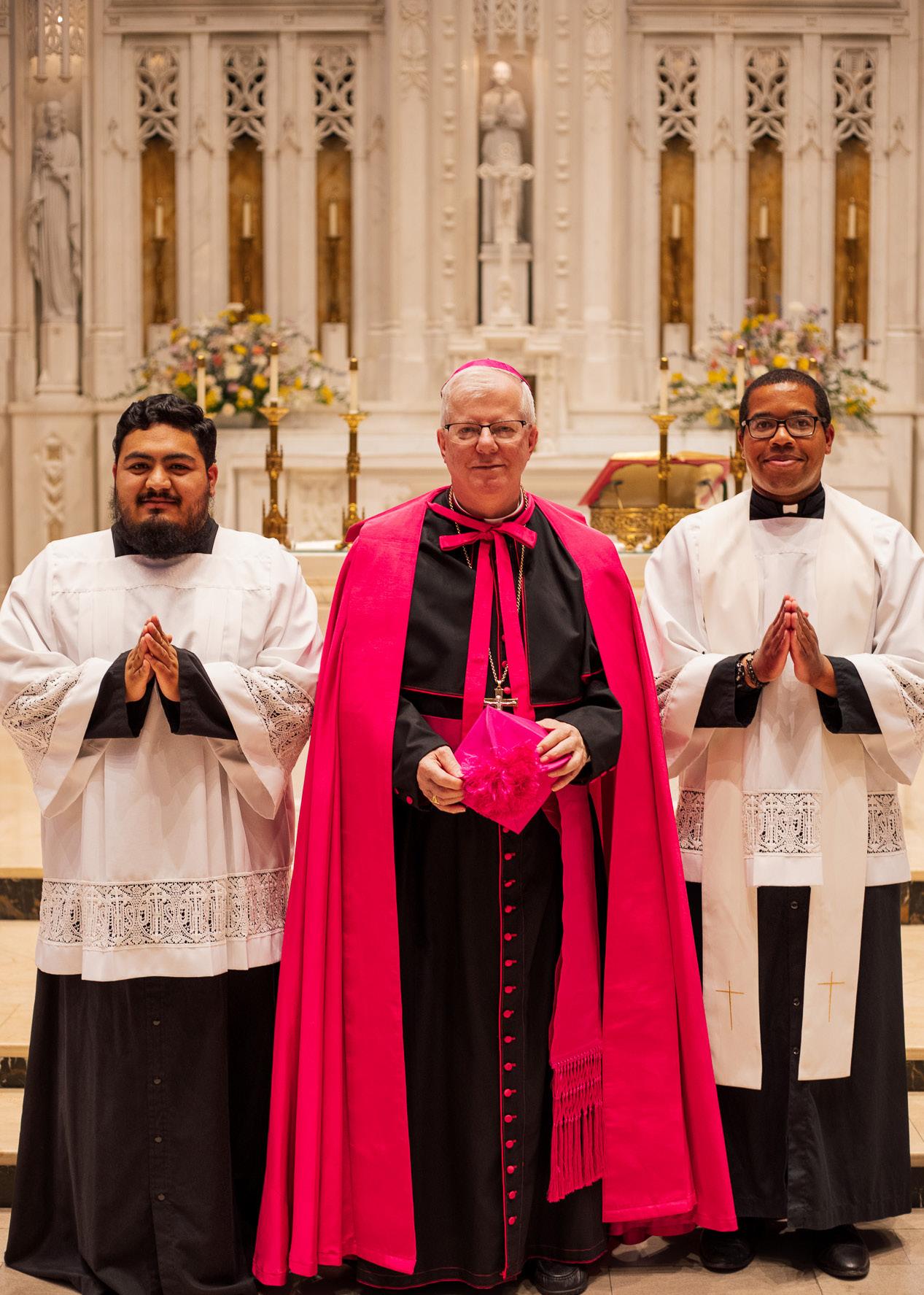
WITH JOY AND THANKSGIVING TO GOD, THE DIOCESE OF SHREVEPORT WELCOMES ANGEL GOMEZ, THE LATEST SEMINARIAN EMBARKING ON THE JOURNEY TOWARDS PRIESTHOOD FOR THE DIOCESE. His acceptance is not just a personal milestone for him but a beacon of hope and renewal for the entire North Louisiana Catholic community.
As a lifelong resident of Benton, LA, Angel grew up with his parents and his older sister. He graduated from Benton High School and then spent the next few years transitioning between various jobs. Over the last year, he's spent countless hours before the Blessed Sacrament in Adoration, and through his time there, Angel was able to discern his true calling: to pursue priesthood in the Diocese of Shreveport.
When reflecting on his journey towards priesthood, he feels our blessed mother and her immaculate heart interceded on his behalf many times, especially in the form of Our Lady of Guadalupe. Angel says, "Our Lady of Guadalupe truly protects and cares for me with her mantle." To draw nearer to Jesus through his blessed mother, Angel leans heavily on praying the Holy Rosary.
As Angel begins his formation at St. Joseph Seminary in Covington, LA, he will undertake a rigorous and enriching curriculum to deepen his theological understanding, pastoral skills, and spiritual life. The journey will be challenging, yet it promises extraordinary fulfillment and transformation. Looking towards the future, Angel most looks forward to celebrating the holy sacrifice of the Mass, elevating the Lord in his Eucharistic presence during the consecration. With his heart focused on our Eucharistic Lord, he enters the seminary where he will study alongside Nathan Lirette and Alan Landeros.
We invite the faithful of the Diocese of Shreveport to join us in celebrating this momentous occasion. Let us extend our warmest welcome to Angel and keep him in our prayers as he embarks on this sacred journey. His path to the priesthood is a testament to our Church's enduring strength and vitality. We look forward with great anticipation to the many ways he will enrich our community in the years to come.


THEN THE LORD GOD PLACED THE MAN IN THE GARDEN OF EDEN TO CULTIVATE IT AND GUARD IT. (GENESIS 2:15)
I am a transplanted city girl. I grew up on the concrete sidewalks of a suburb in Columbus, Ohio, and never knew a farmer until I met my husband, Joe. After our wedding in 1972, we moved to his family farm in northern Red River Parish where we raised our family for the next 38 years. There I developed a deep appreciation for the men and women who work the earth.
A farmer’s life begins before dawn. Most days began with a neighboring farmer calling as Joe drank his first cup of coffee. How much rain did we get last night? Have you heard today’s forecast? Do you have any hay left over to sell? Do you need help getting that field planted today? I quickly learned that the agricultural community is close-knit, formed of planters and harvesters who are all in this together.
My husband often worked seven days a week with only rare vacations. He had fields to plow, cows to check, fertilizer to put out, corn to plant, wheat to combine, hay to cut, tractors to maintain, employees to pay, books to balance. He worked in hundred-degree weather, torrential rain, and bitter cold. I learned that “Mother Nature” can be loving and generous, giving us favorable weather, rain in due season, healthy new calves, bountiful harvests. But “she” could also be cruel – droughts, floods, and diseases in crops and cattle alike – and we learned to take the good with the bad as we relied on the Lord.
A farmer’s day often ends long after sunset, as when the combines run all night to harvest the soybeans before the storm or the cows break through the fence and run onto the highway. And old farmers never retire – they just keep driving their pick-ups around, talking to other retired farmers and giving new farmers advice!
In his second encyclical, Laudato Si’, Pope Francis reminds us of God’s gift to all of us when He created
planet Earth, and he encourages us to seriously consider the ways each one of us can honor and care for our environment. I can’t think of a group who does this better than farm families. My father-in-law, husband, and son have been spiritually attached to the soil that has given our family its livelihood for generations, even as it has also helped to feed the world. Do you think you’ve never eaten a soybean? Check the food labels in your pantry and refrigerator – soybean products are in practically everything we buy at the grocery store!
I love the description in Henry David Thoreau’s Walden of his summer of planting and harvesting a bean field. Along with sowing actual bean seeds, he wrote that his experiment in farming also planted in his soul seeds of virtues: “sincerity, truth, simplicity, faith, innocence, and the like.” Pope Francis’ encyclical develops this theme as he urges us to experience an “ecological conversion” in which, through daily prayer and meditation, we resolve to learn more about our environment and respect nature with the fervor expressed by St. Francis of Assisi in his “Canticle of the Creatures”: Praise be You, my Lord, through our Sister Mother Earth, who sustains and governs us.
I sat one evening in July of 2020 on the back porch of our farm with my son and his children, when we were just able to gather together again during the dreadful COVID-19 pandemic. A brief shower blew up, and after it passed we walked the fence to survey his beautiful soybean crop, which stretched from our back yard to the eastern horizon. Suddenly, a brilliant double rainbow appeared, a glorious reminder of God’s covenant with Noah and his descendants – His promise to never destroy the Earth, a promise of His love and redemption. The photo my son snapped is a wonderful depiction of the Pope’s message, as well as of our farm family’s legacy.

Karen Dill is a spiritual director for the Diocese of Shreveport and a parishioner at St. Elizabeth Ann Seton.

Embark on a Pilgrimage to Italy with the Department of Multicultural Ministries!
Join us as we celebrate the Jubilee Year 2025 and journey to the sacred sites of Assisi and Rome. Thi s special pilgrimage provides a profound opportunity for young adults to deepen their faith and connect with others on a meaningful spiritual adventure.

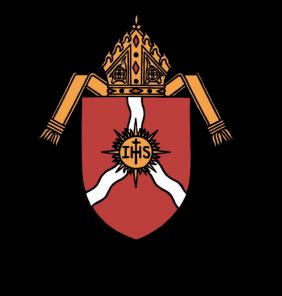

“YOU CREATED MAN TO LABOR AND TO EXERCISE DOMINION OVER THE EARTH, MAY OUR WORK HONOR YOU AND SANCTIFY OUR BROTHERS AND SISTERS.”
This request in the Prayer of Intercession from the Liturgy of the Hours (4th Tuesday, Volume III) reminds us of our foremost responsibility toward the environment. Extolling the work of God and the leadership and responsibility of human beings, it derives from Genesis’ first verses, which stipulate: “In the beginning God created the heavens and the earth. ... God created man in his image ... blessed them, saying to them: ‘Be fertile and multiply; fill the earth and subdue it'” (Gen 1:1,27,28).
Understanding how to live out this double mission to multiply and subdue creation has generated many controversies, misunderstandings, disagreements, pretenses, and evasions in the name of promoting development and protecting species, cultures, and civilizations.
Out of sheer ignorance and lack of other means, tribes depleted resources essential for their survival, such that natural forests – intended to balance droughts, water resources and tropical rains – have completely disappeared from some corners of the world. Cut down to provide charcoal or timber for construction, in their place now stand mushrooming megacities and agricultural projects that were to bring good cash and welfare to citizens. Instead, mineral exploitation and new factories and industries further negatively impacted natural assets by stripping hills bare and polluting fresh water with chemicals. And it is not just in remote villages that our natural spaces are negatively impacted, for even our atmosphere has become crowded with uncontrolled junk satellites, which may one day cause unexpected disasters.
Some countries and non-government organizations are raising the alarm to awaken consciences to the
urgent need for true care of our planet, but their voices seem to ring and echo in the desert. The big companies have all been emerging unscathed from the recent sea disasters caused by their capsized oil tankers and exploding offshore oil and gas well platforms. Owners of these destroyed tankers and platforms quickly promise injury reparations for both the environment and people, but if it is ever done, it is only after lengthy litigations, threats, protests, and equivocations.
"BE FERTILE AND MULTIPLY; FILL THE EARTH AND SUBDUE IT."
GENESIS 1:28
Unconcern for God-given resources at every level, from villages deep in the tropics out to our everspreading modern cities, will lead us to a devastating and humiliating catastrophe. For, if we continue on pace with today’s carelessness about water, natural reserves of swamps and forests, and endangered animals and their habitat, we bequeath an unsafe and toxic environment to upcoming generations.
Consider the experience of the missionary who returned to his religious headquarters in Rome after working at length on one of the largest island in the world, Africa’s Madagascar. Discouraged and perplexed about the island’s future, he explained that people had not cared for the environment. Colonial rulers and subsequent political leaders let villagers burn the forests and graze meadows to the ground. They did not replace trees logged for timbers and charcoal, and farms planted without proper hillside terracing impoverished the soil, causing frequent landslides. This generated outcries from foreign workers, tourists, and visiting experts working for international organizations. Madagascar is rich in natural resources, but their current exploitation


Roads eroded by heavy rain in Fr. Jean Bosco's native village in Ngororero District, Rwanda. The rain caused mudslides and destroyed houses.
both damages the country’s God-given assets and does not improve the lower classes’ condition. This example is from only one country: Many more nations suffer extensively from nuclear wastes secretly discharged in their remote areas and pollution of rich ground water reserves during fracking for fossil fuels.
When I recently sought news about my childhood village in Africa, I was not unhappy to learn of a local authority punished for enabling a Chinese company to unsafely dynamite rocks for highway construction. The company’s actions damaged village houses then it refused to compensate those they harmed. After investigating complaints, controlling officers found bribery and corruption, and the man responsible awaits his impending arraignment from a jail cell.
We can help creation. We were empowered by the Creator to subdue the earth, its resources, and other creatures, but not through irresponsible and capricious tampering, exploitation, and abusive consumerism. Yes, when Adam and Eve sinned, their fault’s repercussions reverberated throughout all creation. But men and women all over the world continue with courage and determination through the struggles of the aftermath. And the Apostle Paul’s words give us strong reasons for hope: “Creation itself would be set free from slavery to corruption and share in the glorious freedom of the children of God” (Rom. 8:21).

Father Jean Bosco
Uwamungu is the pastor at St. Patrick Parish, Lake Providence and Sacred Heart Parish, Oak Grove.

I THINK IT IS FAIR TO SAY THAT A LARGE NUMBER OF HUMANS NO LONGER CARE FOR CREATION. I don’t say this to be a “Debbie downer”; rather, to shed light on the reality of how far and how many of our people have gone out of their way to both disregard and disrespect God through careless (and sometimes cruel) behaviors towards human life, animal life, and planet life. A note here – while this message begins in darkness, it will end in light because of The Light.
Having insufficient space to cover all I would love to discuss with you, I simply highlight here a few examples of how incredibly massive is the number of humans who view God’s creations as insignificant and meaningless:
• According to Pew Research, the Guttmacher Institute reported there were 930,160 abortions in all 50 states in 2020.
• Louisiana has the nation’s second-highest murder rate, at 19.9 murders per 100,000 residents. Keep in mind – this is just one state. (www. worldpopulationreview.com)
• The animal abuse most often reported is for dogs, cats, horses, and livestock. Undercover investigations revealed that abuse abounds in the factory farm industry but, because state cruelty
laws provide weak protections for livestock, only the most shocking cases are reported, and few are prosecuted. (www.thehumanesociety.org)
• Globally, over two billion metric tons of humangenerated waste are dumped every year, polluting every ecosystem around the world. This is unsustainable. (www.earthday.org)
These statistics help illustrate how far humans will go and have gone toward destroying God’s creations, including but not limited to humans, animals, and the earth. They are a fraction of the actual enormity of destruction and devastation happening around the world as you read this article.
The logical question to ask is Why? Why are humans behaving so badly? Why are humans actively destroying human life, animal life, and our beautiful planet? The short answer is this: humans who destroy and kill do not have God as the center of their lives, which means they do not have inner peace, outer peace, self-love, self-worth, and do not properly value themselves or what they possess. As Catholics we know that knowing and loving God, having a close personal relationship with Him, and actively participating in the Mass bring us toward that inner peace, outer peace,
self-love, self-worth, and value. It is important to distinguish self-love from selfishness, narcissism, and arrogance – three traits directly attached to insecurities, doubt, and uncertainty, which are exactly what Satan wants us to feel.
If we sincerely want to end abortion, sex trafficking, pollution, excess trash in landfills, and much more, we must first examine our own hearts, minds and souls. What are we listening to? Who are we listening to? How are we showing up for God or His people and creations? It is our responsibility to not only know and love God but also to share Him with everyone we come in contact with throughout our lives. We must take the time to deal with our hurts, traumas, and wounds in a healthy way that is pleasing to God. We must put Him first, above our family, spouses, children, neighbors, everyone, and everything. Brothers and sisters, there is much darkness in our world but here’s the good news: We, as His sons and daughters, are equipped to shed light on humanity, light that comes only from The Light.
"I am the light of the world. Whoever follows me will never walk in darkness, but will have the light of life” (John 8:12)

Mary Arcement Alexander is a Licensed Professional Counselor & the Diocesan Victim Assistance Coordinator.


THEOLOGY SCHOOL PROFESSOR OF MINE
Life and Dignity of the Human Person
The Catholic Church proclaims that human life is sacred and that the dignity of the human person is the foundation of a moral vision for society.
Call to Family, Community, and Participation
How we organize our society - in economics and politics, in law and policy - directly affects human dignity and the capacity of individuals to grow in community.
Rights and Responsibilities
Every person has a fundamental right to life and a right to those things required for human decency.
Option for the Poor and Vulnerable
In a society marred by deepening divisions between rich and poor, we are instructed to put the needs of the poor and vulnerable first.
The Dignity of Work and the Rights of Workers
Work is more than a way to make a living; it is a form of continuing participation in God's creation.
Solidarity
We are one human family whatever our national, racial, ethnic, economic, and ideological differences.
Care for God's Creation
We are called to protect people and the planet, living our faith in relationship with all of God's creation.
ONCE SPOKE ABOUT THE KINGDOM OF GOD AS BOTH A GIFT AND A TASK. It is a gift in that, in its fullness, the Kingdom of God is one of grace, given to us out of God’s gratuitous love. Jesus’ life, death, and resurrection announced and inaugurated the Kingdom of God. He taught us, in both word and deed, not only what God’s Kingdom looked like but also how to build it; thus, the Kingdom is a task to which we are called. It is not a far off utopia that we sit and wait for, but a reality in which Christ invites us to participate “on earth as it is in heaven.” So, what does this look like? How do we become collaborators with God and build His Kingdom on earth?
There are many ways to approach this question. For me, Catholic Social Teaching (CST) is a gift that helps us chart a path in a world that seems increasingly broken and complicated. I have been privileged to introduce CST to high school students preparing for their Confirmation and to dive deeper into each of CST’s seven themes with young adults in the Laudato Si’ Advocates Program (LSAP: This year-long internship cultivates renewal and ecological conversion through formation, mentorship, and professional experience in policy, outreach, and advocacy). Each time I discuss CST with students, I feel a deep sense of joy and honor to be part of this faith that rightly holds justice, particularly for the most vulnerable, at the center of its social ethics. And I am struck, again and again, by the interconnectedness of the CST’s seven themes.
My work with both the LSAP and National Religious Partnership for the Environment focuses specifically on caring for God’s creation, but a holistic approach to this or the other six themes requires a radical commitment to all of them. Pope Francis reminds us in Laudato Si’ , and again in Laudate Deum , that everything is connected. In particular, environmental degradation and climate change threaten the life and dignity of the human person, particularly those who Jesus taught us to prioritize and care for first – the poor, vulnerable, and marginalized.
In the U.S., we know low-income households and communities of color bear the weight of climate change first and worst. It is in and through already marginalized neighborhoods that industrial facilities and highways are built, driving down property values, increasing death-dealing pollution, and further perpetuating cycles of poverty.
If we refuse to confront the realities that how we spend our money, how we travel, who we vote for, how we speak, etc., contribute to exploitative cultures and systems, both environmentally and socially, then we fail to uphold the dignity of all life, care for the poor and vulnerable, and stand in solidarity with all our brothers and sisters. Ultimately, I understand my work to advocate for stronger environmental policies as being driven by our collective Christian calling to be collaborators with God, workers in the vineyard to build His Kingdom. We must take care to remember that no human project will lead to the Kingdom in its fullness – that is a task for God and God alone. But we can cooperate with His grace and be active agents of His love, mercy, and justice, participating in the slow, faithful work of Christ here on earth. In a world that seems so complicated, CST and our Catholic faith help simplify our ability to answer this: Are our words and actions building up the Kingdom of God or are they not?

Katie Glenn Brown is the Program Manager for National Religious Partnership for the Environment.


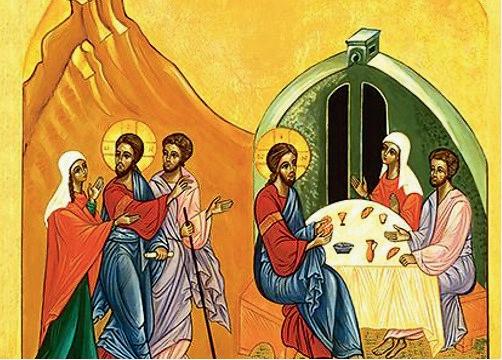

By Kevin Schemenauer, Ph.D.
Beginning with Laudato Si' (“Praise be to you, my Lord”), the opening phrase of the great saint’s famous Canticle of the Sun, the pope invites us to imitate St. Francis of Assisi, who praised God for the wonders and gifts of creation: “Rather than a problem to be solved, the world is a joyful mystery to be contemplated with gladness and praise” ( Laudato Si' , 12). Building on the pope’s reflections and St. Francis’ example, I will emphasize two themes that highlight the theological foundations for our care for creation and the relationship between care for creation and Catholic social ethics.
First, the world is beautiful and worthy of contemplation. We occasionally experience the elevating character of natural beauty, for example, when we see a sunset’s red hues spread across the sky. Such experiences dramatically express a theological truth: the goodness and beauty present in all of God’s creation. This truth filled the Franciscan’s founder with awe and joy. For us to find the necessary motivation to care for creation, we too must recognize its goodness, which always surrounds us.
Our attentiveness to creation’s beauty aids our relationship with the Creator, as St. Paul writes, “Ever since the creation of the world, his invisible attributes of eternal power and divinity have been able to be understood and perceived in what he has made” (Romans 1:20). Jaime Schaeffer highlights how, lacking printers, many early Christians had no access to the book of Scriptures, and thus learned about God primarily through the book of nature. Through creation, they saw manifestations of the Creator’s generosity, goodness, beauty, and power, and also reminders that God is not limited to His creation. Creation both reveals and veils God: revealing dimensions of God’s power and goodness while veiling the Infinite, whose overwhelming beauty and goodness we cannot yet endure or comprehend (Schaefer, Theological Foundations for Environmental Ethics , 71).
A second insight shared by pope and saint is the connection between care for creation and care for the poor. Creation sustains our lives by providing oxygen, water, food, and materials for building shelter. When these elements are consumed or polluted, people who depend on them suffer. Pope Francis highlights how

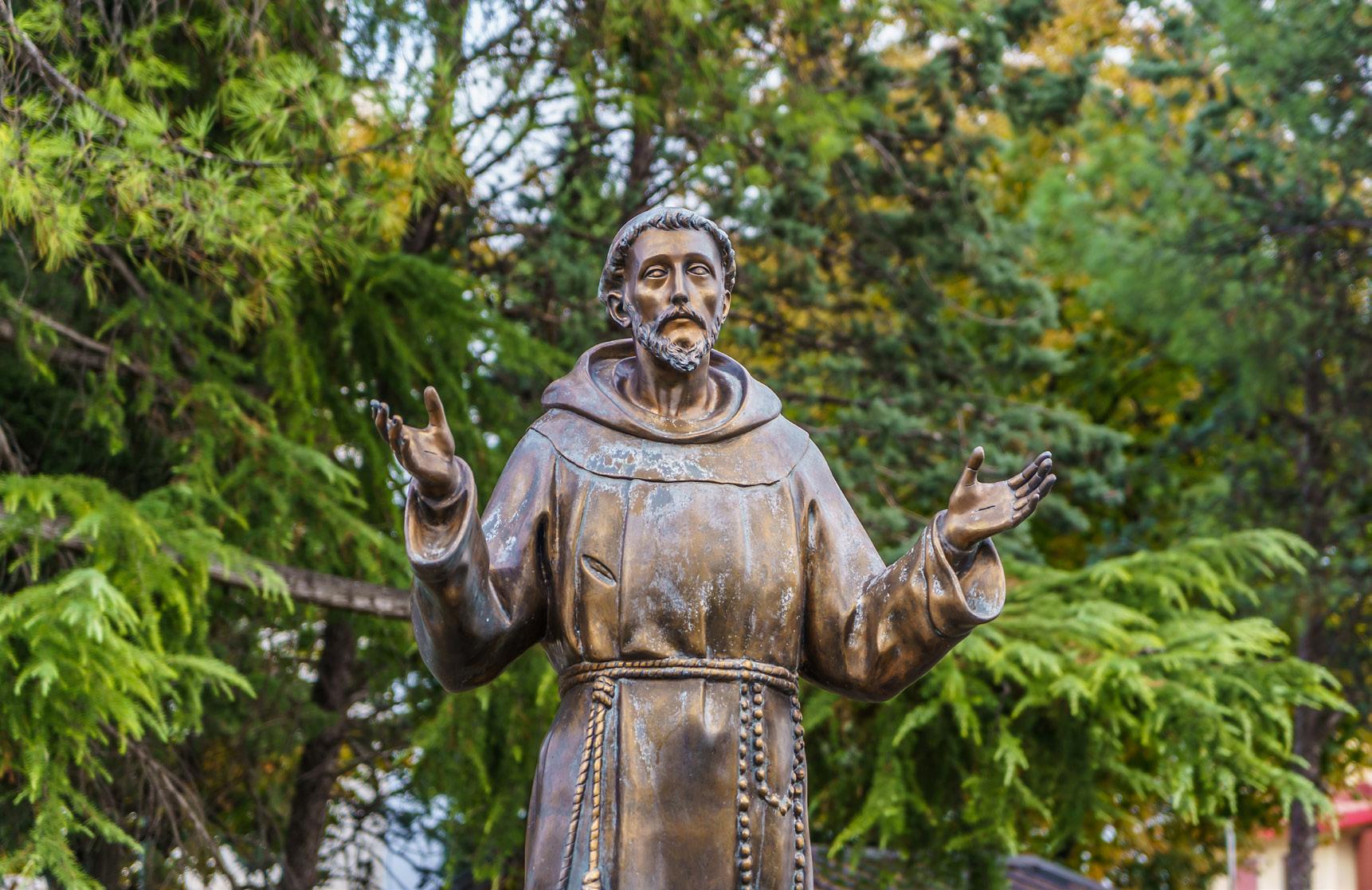
many young children tragically suffer and die from lack of clean water or polluted air (#20 and 29). And many communities so rely on single item commodities, like lumber, fish, mining, or agriculture, that when the resources are exhausted, those who live there lack job opportunities (#25). While humans are the greater good compared to plants and animals, we overlook and harm both if we view the world as merely a resource to serve our wants. Pope Francis writes, “If we no longer speak the language of fraternity and beauty in our relationship with the world, our attitude will be that of masters, consumers, and ruthless exploiters, unable to set limits on their immediate needs” (#11). His words echo the life of St. Francis, whose bold service to both creation and the poor demonstrated the link between care for each.
Pope Francis and Saint Francis highlight that the world is beautiful and worthy of contemplation and that care for human poverty is integrated with care for creation. They invite us to the joy of seeing God through creation and Christ in the poor. Praise be to you, my Lord.

Kevin Schemenauer, Ph.D. is an Associate Professor of Moral Theology at Saint Meinrad Seminary and School of Theology. He is author of the book "The Family as Basic Social Unit: Living Out Catholic Social Teaching."

CON ALEGRÍA Y AGRADECIMIENTO A DIOS, LA DIÓCESIS DE SHREVEPORT DA LA BIENVENIDA A ÁNGEL GÓMEZ, EL MÁS RECIENTE SEMINARISTA QUE SE EMBARCA EN EL CAMINO HACIA EL SACERDOCIO PARA LA DIÓCESIS. Su aceptación no es sólo un logro personal para él, sino un signo de esperanza y renovación para toda la comunidad católica del norte de Luisiana.
Como residente de toda la vida de Benton, LA, Ángel creció con sus padres y su hermana mayor. Se graduó en el instituto de Benton y pasó los años siguientes alternando varios trabajos. Durante el último año, ha pasado innumerables horas ante el Santísimo Sacramento en el altar, y a través de su tiempo allí, Ángel fue capaz de discernir su verdadera vocación: seguir el sacerdocio en la Diócesis de Shreveport. Al reflexionar sobre su camino hacia el sacerdocio, siente que nuestra bendita madre y su corazón inmaculado intercedieron por él muchas veces, especialmente en la forma de Nuestra Señora de Guadalupe. Ángel dice: «Nuestra Señora de Guadalupe realmente me protege y me cuida con su manto». Para acercarse a Jesús a través de su bendita madre, Ángel se apoya mucho en el rezo del Santo Rosario.
Cuando Ángel comience su formación en el Seminario de San José en Covington, LA, emprenderá un plan de estudios riguroso y enriquecedor para profundizar en su comprensión teológica, sus habilidades pastorales y su vida espiritual. El camino será difícil, pero promete una realización y una transformación extraordinarias. Mirando hacia el futuro, lo que más espera Ángel es celebrar el santo sacrificio de la Misa, elevando al Señor en su presencia eucarística durante la consagración. Con su corazón centrado en nuestro Señor Eucarístico, entra en el seminario donde estudiará junto a Nathan Lirette y Alan Landeros.
Invitamos a los fieles de la diócesis de Shreveport a unirse a nosotros en la celebración de esta ocasión tan especial. Demos nuestra más calurosa bienvenida a Ángel y mantengámoslo en nuestras oraciones mientras se embarca en este sagrado viaje. Su camino al sacerdocio es un testimonio de la fuerza y vitalidad perdurable de nuestra Iglesia. Esperamos con gran expectación las muchas maneras en que enriquecerá nuestra comunidad en los años por venir.


AT FIRST GLANCE, CATHOLIC CHARITIES DOESN’T SEEM LIKE AN ENVIRONMENTAL, CREATIONCENTERED ORGANIZATION. Our primary programs involve financial education, parenting, and immigration. We don’t talk much about clean air and water or climate change.
Pope Francis’ encyclical Laudatio Si’, quickly shifted my perspective: “We have to realize that a true ecological approach always becomes a social approach; it must integrate questions of justice in debates on the environment, so as to hear both the cry of the earth and the cry of the poor.”
The reality is that the poor are often the first affected by environmental change – climate is among the most significant motivations for migration today. The United Nations reports that 32.6 million people were displaced within their own country in 2022 because of weatherrelated hazards, such as floods, storms, and wildfires. Within our own state, people currently question whether to stay on the Gulf coast and risk another hurricane season or move north.
On a more local level, CCNLA has received calls from more than one client needing mortgage help as they struggle with rising home insurance costs because of increased frequency of weather damage.
We’ve responded by assisting where local tornadoes’ damage devastated families who barely make it during good times. And in our Money $chool class, required for those receiving assistance with utility bills, we cannot recommend that clients live without air conditioning, even as rates climb. (We do encourage mindfulness with their thermostat settings!)
Now, what do we do next? Pope Francis references two key components of Catholic Social Teaching: solidarity and preferential treatment for the poor.
Solidarity reminds us that we are our brothers and sisters’ keepers. It recalls the age-old exercise of walking a mile in another’s shoes, or as Paul writes, “If [one] part suffers, all the parts suffer with it; if one part is honored, all the parts share its joy” (1 Cor. 12:26).
Preferential treatment for the poor sounds more challenging, but simply asks us to remember that not everyone is as fortunate as we are and to consider whether our actions help, or make more dire, their situation. For, as Jesus said, “Whatever you did for one of these least brothers of mine, you did for me” (Matt. 25:40).
As we ponder this in prayer and our response to the call for care of creation, we are called to conversion. In Pope Francis’ message for the World Day of Prayer for the Care of Creation, he takes a hopeful approach, trusting in God’s promises: “To hope and act with creation, then, means to live an incarnational faith, one that can enter into the suffering and hope-filled ‘flesh’ of others … In this way our lives can become a song of love for God, for humanity, with and for creation, and find their fullness in holiness.”

Diane Libro is the Executive Director of Catholic Charities of North Louisiana.

MANY BIBLICAL AUTHORS EMPHASIZED GOD’S PROFOUND LOVE FOR CREATION: “GOD LOOKED AT EVERYTHING HE HAD MADE AND FOUND IT VERY GOOD” (GEN. 1:31). Their verses underscore the Church's recognition of all created things’ integrity and essential value. The psalmist and prophets further bolster this narrative, declaring that the mountains sing and the rivers and trees clap their hands (Is. 55:12, Ps. 98:7-9), imagery that surely brought God great joy as He witnessed living creation give Him glory.
God loved creation so much that He would do anything to save it; after all, He gifted it out of love to be our home. “For God so loved the world” (John 3:16) is nothing less than the cornerstone of our Creator’s relationship to His creation. If He loves our home so much that He willingly gave Himself to save it, what are we doing to care for or save it? How are our family, parish, and diocese responding to God’s concern through our own personal commitments and actions? Consider one more passage to, perhaps, seal acceptance of our responsibility to care for our common home: “The earth is the Lord’s, and everything in it, the world, and all who live in it” (Ps. 24:12).
Thus, this ecological environment we live in is not for us to do with as we please. It is not ours – it belongs to the Lord. And He commanded us in our relationship with it – all of it. He gave it to us, to love and care for, just as He loves and cares for, it. Pope St. John Paul II saw care for creation as our responsibility due to the significant environmental problems we face (The Ecological Crises 3). It has been said by some that we'll go down in history as the first society that wouldn't save itself because it wasn't cost effective. A chilling thought!
But that’s not how Jesus thought nor how the Church taught. For us Catholics, God’s laws regarding care for creation are devoid of concern for economic profit and loss and instead inundated with His calls for our loving response. With ample opportunities to engage, we each need, as always, to discern our proper responses.
Is He calling you to help change how we treat animals raised for our consumption, help find creative reuses for plastic, or choose for your next vehicle a more fuelefficient model? Perhaps, He’s leading you to discover ways our country can accept millions of immigrants fleeing to our shores as rising sea levels devastate their homelands or to relocate American citizens whose coastal homes have become submerged. God might direct you to aid the elderly during extreme heat or even find humanity’s role in reversing some ecological problems, and so prevent these catastrophes.
God and Catholic teachings call each of us to care for our common home. Whether we respond from fear of calamities or to join the many already active in creation’s care because it’s God’s will, there is an urgency for us to discern God’s voice for our actions today. Caring for creation is not an option. It is a calling.
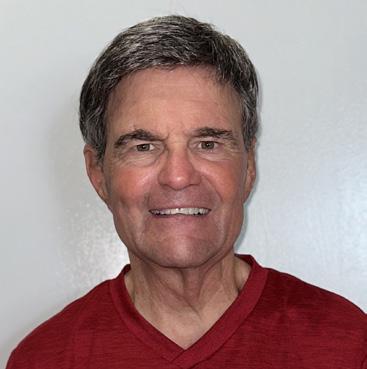
Mike Van Vranken is a spiritual director for the Diocese of Shreveport and a teacher of new spiritual directors for the Archdiocese of New Orleans.




Cathedral of St. John Berchmans
Friday: 11 AM - Noon
Benediction at 11:45 AM
Saturday: 10 AM - 2 PM
Blessed Sacrament Church, Ringgold
Thursday: 5 PM Mass and Adoration
Christ the King Church, Bossier City
Friday: 9 AM - 5 PM
Friday: 7 PM - 8 PM
Holy Trinity Church, Shreveport
Monday: 6:45 AM - 7:15 AM
Tuesday: 6:45 AM - 7:15 AM
Wednesday: 6:45 AM - 7:15 AM
Thursday: 6:45 AM - 7:15 AM
Friday: 6:45 AM - 7:15 AM
Mary, Queen of Peace Church, Bossier City
Thursday: 8 AM - 4 PM
Our Lady of the Blessed Sacrament Church, Shreveport
Wednesday: 10 AM - 4:30 PM
Sacred Heart of Jesus Church, Shreveport
Wednesday: 9 AM - 10 AM
Benediction at 9:50 AM
St. Clement Church, Vivian
Wednesday: 6:30 PM - 7:30 PM
St. Elizabeth Ann Seton Church, Shreveport
Friday: 8 AM - 3 PM
St. Joseph Church, Shreveport
Perpetual Adoration
St. Jude Church, Benton
Wednesday: 7:30 AM - 5 PM
Benediction at 5 PM
Divine Mercy Chaplet at 5:20 PM
St. Margaret Church, Homer
Tuesday: 4:30 PM - 5 PM
St. Mary of the Pines Church, Shreveport
Tuesday: 9 AM - 4 PM
Holy Hour at 3 PM
Benediction at 3:30 PM
St. Paul Church, Minden
Friday: 5 PM Mass and Adoration
St. Pius X Church, Shreveport
Wednesday: 8:30 AM - 10 AM
Jesus the Good Shepherd Church, Monroe
Tuesday: 6 AM - 9 PM
Benediction at 5 PM
Little Flower of Jesus Church, Monroe
Wednesday: 4 PM Mass and Adoration
Our Lady of Fatima Church, Monroe
Thursday: 7 AM - Noon
First Friday: 6:30 PM - 7 PM
Sacred Heart Church, Oak Grove Wednesday: 8 AM - Noon
Sacred Heart Church, Rayville Third Thursday of the month, 5:30 AM - 5:30 PM
St. Joseph Church, Bastrop Wednesday: 4 PM - 5 PM
St. Matthew Church, Monroe Wednesday: 7:30 AM - 6 PM
Benediction at 6 PM
St. Paschal Church, West Monroe
Tuesday: 11 AM - 2 PM
Wednesday: 4 PM - 5:15 PM
Thursday: 11 AM - 2 PM
First Saturday: 8 AM - 9 AM
St. Patrick Church, Lake Providence Friday: 8 AM - 5 PM
St. Theresa Church First Thursday of the month, 4 PM - 5 PM
St. Thomas Aquinas Church, Ruston Friday: 6 PM - 7 PM
St. Ann Church, Ebarb Fourth Thursday of the month, 8 AM - Noon
St. Joseph Church, Mansfield First Thursday: 8:30 AM - Noon

CONCERNING THE HEROIC OFFERING OF LIFE ON ACCOUNT OF THE VIRTUE OF CHRISTIAN CHARITY ON THE PART OF THE SERVANTS OF GOD:
Father Isidore Quémerais, Father Jean Pierre, Father Jean-Marie Biler, Father Louis Gergaud, and Father Francois Le Vézouët
The Servants of God Father Isidore Quémerais, Father Jean Pierre, Father Jean-Marie Biler, Father Louis Gergaud, and Father Francois Le Vézouët, collectively known as the Shreveport Martyrs, were all born in the Brittany region of France and all migrated to Louisiana to serve in the Diocese of Natchitoches. Bishop Auguste Marie Martin, the first bishop of Natchitoches, recruited all five during the years 1854 – 1870. They served throughout the Diocese of Natchitoches in various locations before their lives converged in Shreveport during the great 1873 Yellow Fever Epidemic. They bravely and heroically ministered to those afflicted by that dreaded disease, while fully knowing the grave peril to their own health. Numerous historical testimonies exist that document their willing sacrifice of their own lives for others in need, and during this heroic offering, they each consecutively contracted the illness themselves, and each succumbed. Beginning with the death of Father Quémerais on September 15 and concluding with the death of Father Le Vézouët on October 8, each priest gave up his life for the care of strangers. They have been hailed as a “heroic brotherhood,” their memory etched into the history, their graves became places of devotion, and magnificent tributes have been paid to their sacrifice across the years since their deaths.
All five of these heroic priests were known for holiness and the heroic offering of their lives for charity’s sake, having given great example of the Gospel call to lay down one’s life for one’s friends (John 15:13). This notoriety caused their names to be memorialized in the public history, dating to the period immediately following their deaths when devotional cards were already being produced, Masses offered in commemoration, and great reverence paid to the earthly remains of all five. This prompted a petition that the Bishop of the Diocese of Shreveport begin a cause for beatification and canonization. Having brought this cause to the knowledge of the Church Community, we invite all the faithful to communicate directly with us all information they may have which might in any way help us, either favorable or contrary, to understand the notoriety of sanctity and the offering of life of the abovementioned Servants of God.
Furthermore, needing to gather, according to canonical norms, all the writings attributed to them, diaries, letters or every other private writing in anyway relevant to the cause, we order, with the present edict, to those who might be in possession of them, to send them with due solicitude to the Diocesan Tribunal located at the Diocese of Shreveport, 3500 Fairfield Avenue, Shreveport, Louisiana, 71104. Those wishing to conserve the originals may present a duly authenticated copy.
In conclusion, we establish that this present edict be published in the Diocese of Shreveport Catholic Connection, along with the earliest known portrait of the Servants of God presented together.
Given at Shreveport, LA this 1 day of August, 2024

+Malone
Bishop of Shreveport




WE USE THE PHRASE “SJB FAMILY” FREQUENTLY IN SOCIAL MEDIA AND MARKETING EFFORTS, BUT IT IS NOT A MARKETING TACTIC OR “FEEL GOOD” WORDS DESIGNED TO IMPRESS OTHERS; IT IS A MINDSET. When you are at SJB, whether the school, the Cathedral parish, or just visiting, you are a part of our family, and we care about you. In caring for the students, we can exemplify the care of God's creation. By guiding, teaching, praying for (and with), and loving our students, we express our care for God's beloved children. Caring for creation is not only about being good stewards of the resources we have available to us, it also means caring for each other. At SJB, we have sought to create an environment where our motto, "Kindness is practiced here," is lived out among the faculty, staff, and students.
As we settle back into the new school year, we're reminded of the great responsibility we have at SJB. Our mission statement calls it a sacred ministry, and that's exactly what it is. It's our sacred duty to provide a quality education rooted in the faith and the traditions of our Church. This is how we Care for Creation at SJB, by instilling these values in our students and living them out in our daily lives.

Cassandra Key is the Director of Communications and Development for the Cathedral of St. John Berchmans Parish and School.


"Then God said: Let us make human beings in our image, after our likeness. Let them have dominion over the fish of the sea, the birds of the air, the tame animals, all the wild animals, and all the creatures that crawl on the earth." Genesis 1:26
The beautiful book of Genesis teaches us volumes about how God created everything with just a word and gave humans dominion over all of that creation. This is one of my favorite lessons to teach because the kids are always fascinated by the idea that all of creation was in perfect harmony in the beginning and that God made us that way. They begin to appreciate that we, human beings, are to care for all that He created, including each other. At St. Joseph Catholic School, we strive every year to show our students in many ways that they are not too young to do this on their own.
This summer, our MiniVinnies participated in The Jared Box Project, which brings boxes of toys, games, activity books, etc., to kids in the hospital. We started this project by talking about what it is like to be sick, hurt or hospitalized; that sometimes it can be an anxious experience and how receiving a gift like a Jared Box might lift the spirits of someone in that situation.. Using funds in our MiniVinny account, we purchased the items for kids of all ages, then spent a warm July morning assembling and sorting them, filling the shoebox-sized boxes with the goodies, writing notes of encouragement for each one, then decorating the outside of the boxes. We delivered these to Oschner/LSU soon after the school year began. Our kids loved the challenge of putting things in a box that would put a smile on another kid's facesomeone they would likely never meet.

Our Middle School students in the National Elementary Honor Society are not just meeting their service hour requirements, they are embracing them with enthusiasm and dedication. Their commitment to understanding and living out their baptismal call to love our neighbor as ourselves, to be the hands and feet of Jesus to each other, is truly inspiring. The varied ways that our students find to serve their neighbor and their community never cease to amaze me: volunteering at a soup kitchen, food pantry, or animal shelter; mowing the lawn of an elderly or sick neighbor; cleaning up someone else's property and taking out their trash; working at a 5K for a special cause; assisting the residents of Holy Angels Residential Facility; and often serving their parish as lectors, cantors, ushers or altar servers.
Last year our Middle School students gave over 2,200 hours of service to the community! Even our Blessing of Animals each year in October teaches our children about the beautiful creatures that God gave us to care for.
By virtue of our baptism, each of us is made priest, prophet, and king. Please continue to pray for the faculty, staff, and clergy of SJS as we encourage our students to embrace these roles through service, our virtue program, and weekly Mass.

Polly Maciulski is the Middle School religion teacher at St. Joseph Catholic School.




(005) James & Donna Barnard (015) Estate of Phyllis McCown (036)4 Rev. Msgr. Earl V. Provenza (005) The Congregation of St. Johns Roman Catholic Church (008) Charles & Beverly Bennett (036)4 Diane Marlowe (021) Debra Robertson (008) Jason & Lisa Mathews (035)3 Mrs. Rosemary C. Ward (050) James & Donna Barnard
"Dear friends in Christ, thank you for your time, talent, sacrifices, love, and prayers in support of the Church through your support of seminarians. Because of this, we go to an excellent seminary where they take care of us and give us the skills to serve you better. So much care goes into this. Thank you again for your support... seen and unseen by us, but always seen by God, our loving Father."
- Austin Young , Diocesan seminarian currently attending St. Meinrad Seminary in St. Meinrad, IN
The Diocese of Shreveport’s Seminarian Burse Program provides financial support for our seminarians' livelihood and education until they become ordained as priests, a path that can take up to eight years to complete. It currently costs an average of $50,000 per year to educate and support one seminarian.
Donations can be made to any existing incomplete burse at any time. (A burse is “completed” once it reaches $10,000.) A new seminary burse can be opened with a donation of $250 or more and can be established in honor or memory of a loved one, in the name of especially well-loved priests or organizations with any amount of money.
All donations to the Seminary Burse Program remain untouched principal. Only interest and dividends from the endowed fund are used to pay for the annual cost of seminarian formation. For more information on how to establish or contribute to a burse, please contact the Development Office at (318) 219-7260.

To see an up-to-date list of incomplete and complete burses, please scan here
To donate to an established seminarian burse, please scan here


Knights of Columbus Marian Council #3779 held a fundraising Jambalaya dinner benefiting the Renzi Education and Art Center. Located in the Stoner Hill/ Highland area of Shreveport, the center is a vibrant community hub dedicated to fostering creativity and learning among youth. Founded in 1997, it offers free after-school programs and summer camps focused on academics and the arts. With a mission to empower and inspire, the Renzi Center provides a safe and nurturing environment where children and teenagers can explore
their artistic talents, receive academic support, and develop life skills. Through various programs including visual arts, music, dance, and tutoring, the center plays a pivotal role in enriching the lives of young people in the community. In the picture: Richard Guzman, Program Director Dr. Will Janes, Sister AnnaMaria lannetti, OLS, Grand Knight Tommy Carter, Executive Director Belinda Roberson, Mike Rose, and Council Financial Secretary John Walker.


Congratulations to Holy Trinity's Business Manager Gwen Youngblood on the 25th Anniversary of her employment with Holy Trinity and the Diocese of Shreveport! Blessings to Gwen! Gwen has also been a longtime Our Lady of the Blessed Sacrament Church member.






College Prep
FUTURE FLYER FEST UPCOMING EVENTS
SEPT. 13 | 1 P.M. | LCP

FLYER GIVING DAY
SEPT. 19
GIVINGDAY.LOYOLAPREP.ORG



SEPT. 27 | 7 P.M. | MESSMER
FLYER ALUMNI BBQ HOMECOMING GAME
OPEN HOUSE WEEK
SEPT. 28 | 5 P.M. | LCP OCT. 21-25 | LCP LOYOLAPREP.ORG




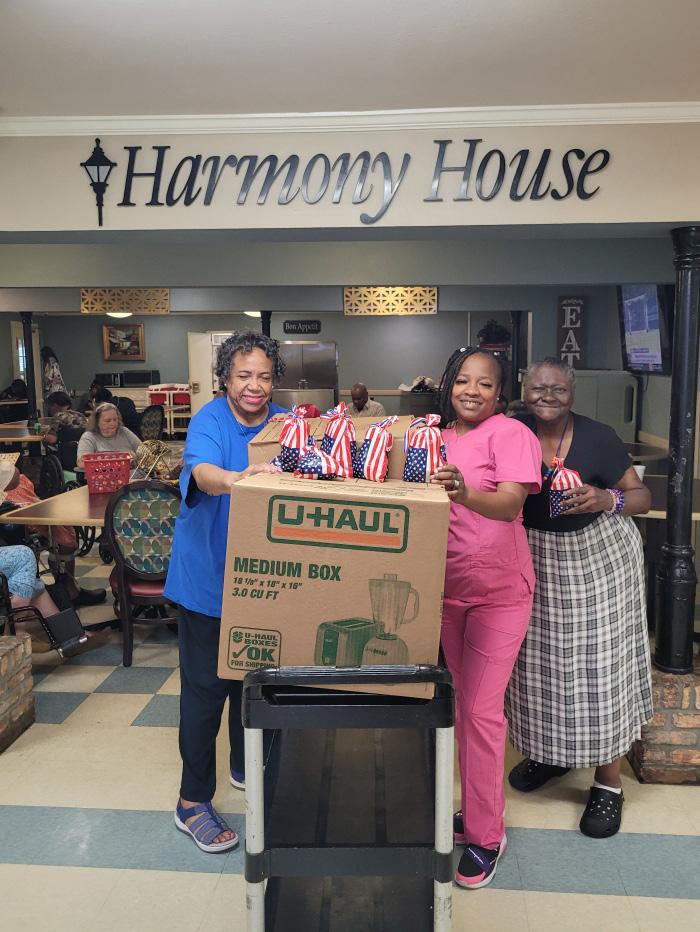
A Grand Celebration! Society of St. Vincent de Paul members working with the Knights of Peter Claver at Our Lady of the Blessed Sacrament Church celebrated July 4th by giving of themselves to others! Together they made over 100 treat bags to distribute to residents at Harmony House Nursing and Rehabilitation Center and then hosted a July 4th reception for their fellow parishioners. A grand time was had by ALL!



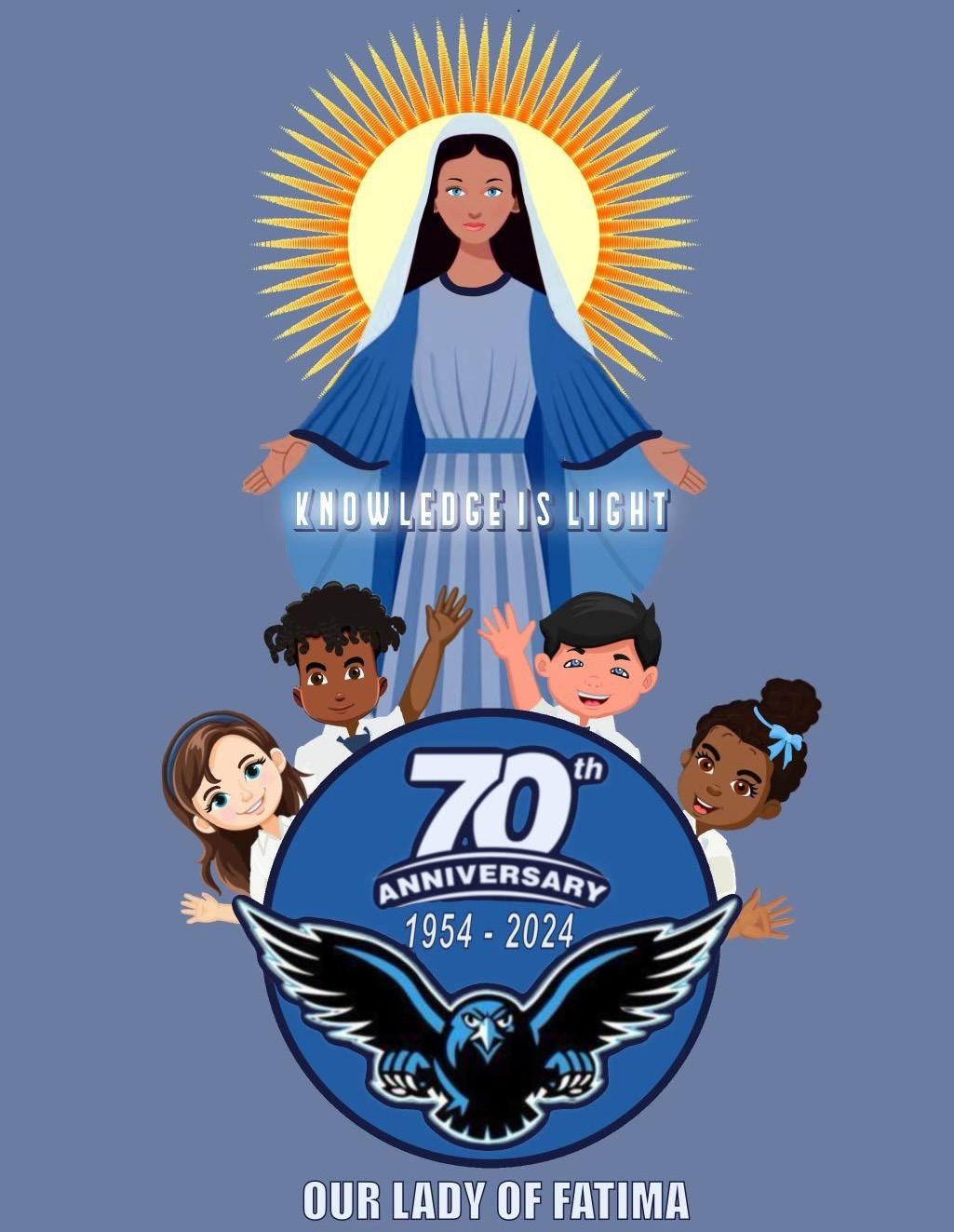

Beginning on Saturday, October 5th, through Friday, October 11th, the parish communities
Thanks to Father George W. Martinez, the wonderful parishioners, the Daughters of the Cross, Mother Mary Constance and the Franciscan Sisters, Our Lady of Fatima School began its legacy.
By the grace of God and guidance of Mother Mary, the school has continued to serve as a pillar and beacon to children from all walks of life. Our Lady of Fatima is truly a mission of the Church serving a diverse community in the ways of God.
in the Diocese of Shreveport will gather for the Eucharistic Rosary Congress.
We will offer Eucharistic Adoration and pray the Holy Rosary with special intentions for our diocesan community. Our prayer intentions include an increase in Eucharistic Adoration, the safety of our children, those unemployed or in poverty, Catholic education, our clergy, Bishop Malone, and many more.
Under the “Traveling Eucharistic Rosary Congress” banner, parishes throughout the diocese will unite in prayer. Every hour on the hour,

in front of the Blessed Sacrament, we will offer Eucharistic Adoration and pray the rosary, presenting our special intentions. While one parish will maintain perpetual Adoration, others will host Holy Hours throughout the week. Together, we will cover the entire week in rosary prayers and Adoration, fostering a sense of unity and togetherness in our diocesan community.
Please contact your parish for your Adoration and Rosary times and come rosary pray with your diocesan faithful community. How many hours of rosary prayers and Adoration will our diocese offer?







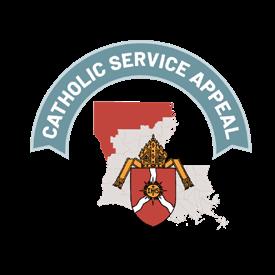




Ms. Ophelia Sepulvado of Noble, LA, celebrated her 100th birthday with her seven children and dozens of family members and friends, including Father Tim Hurd, her pastor at St. Joseph/Zwolle for many years.
list below any special intentions for which you would like prayer assistance.


DIOCESE OF SHREVEPORT
3500 Fairfield Ave. • Shreveport, LA 71104
Catholic Connection USPS 024-824 is published monthly except for July by the Diocese of Shreveport, 3500 Fairfield Ave., Shreveport, LA 71104. Periodicals Postage PAID at Shreveport, LA 71102. POSTMASTER: Send address changes to Catholic Connection, 3500 Fairfield Ave, Shreveport, LA 71104.
